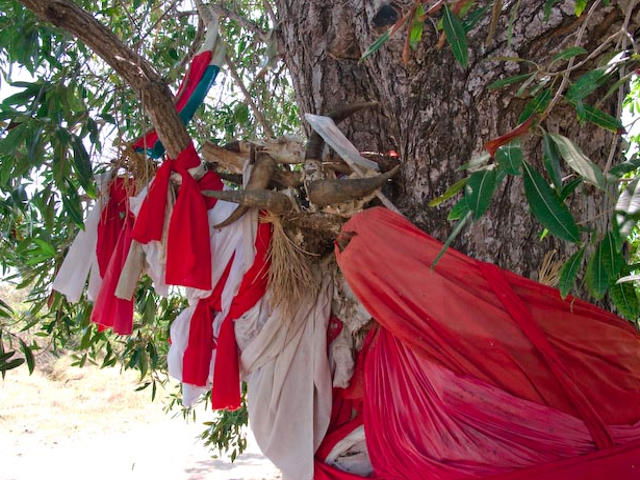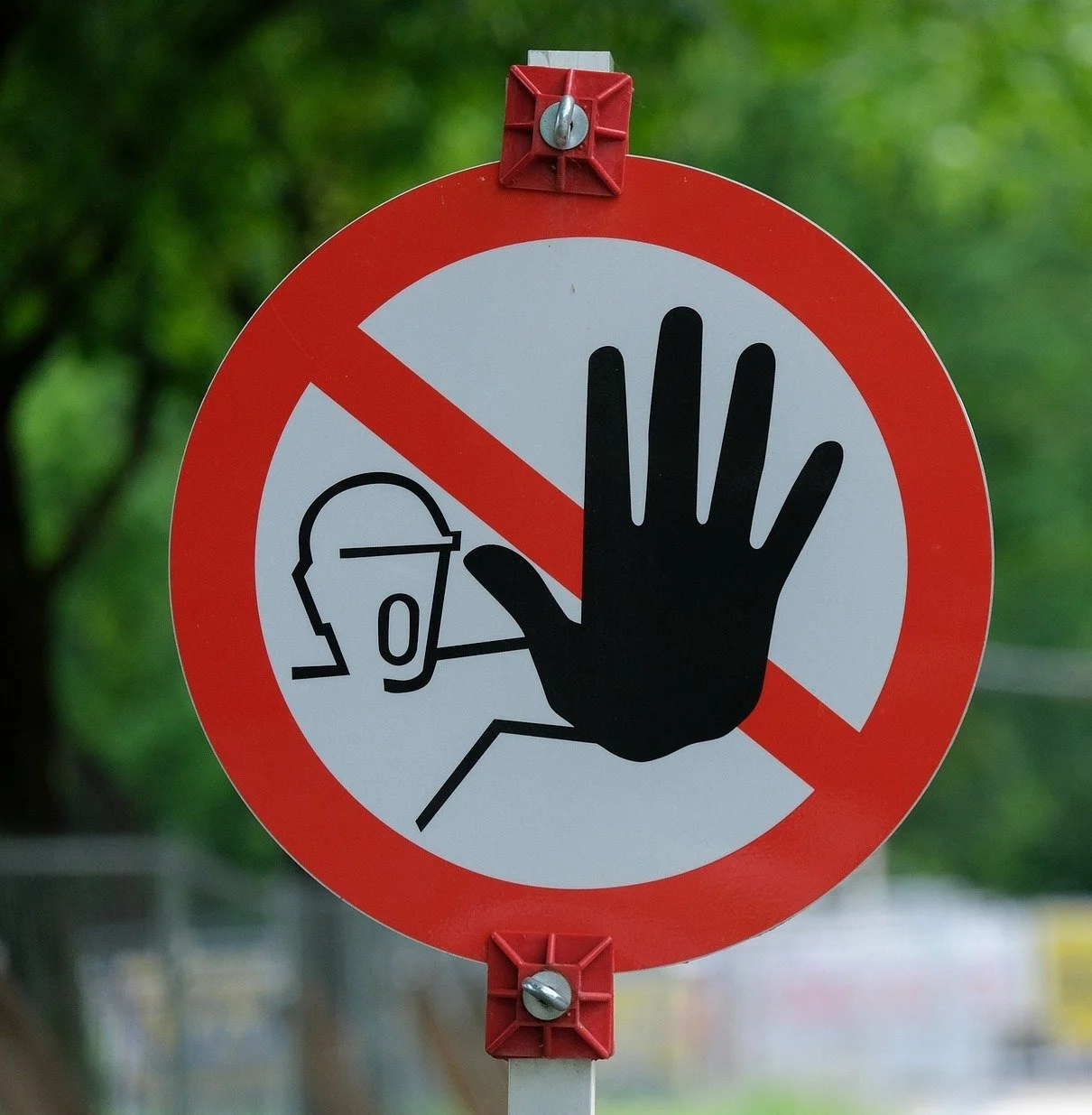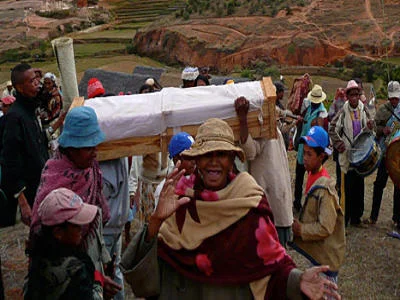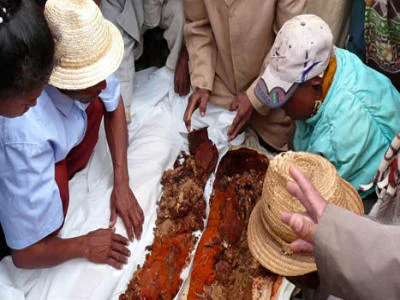FADYS - TABOO - PROHIBITIONS

Madagascar is the country of the “Fady”.
Fady means taboo in Malagasy, but it can also have other meanings, such as holy or it can also mean a prohibition.
These are rules in certain situations.
A fady is used to avoid arousing the resentment of the ancestors.There are rules that are impossible for us to understand, such as that it is forbidden to bathe in a lake because the ancestors swim in this lake as fish. Every Malagasy must adhere to this fady if they do not want to have problems in their social environment and do not want to attract misfortune.
Tourists are also often not allowed to enter these holy places.
Please stick to this to avoid problems!

Basic rule for sacred places:
Always walk barefoot, take off your headgear, don't point your finger at holy things and don't take photos.
In some regions, pregnant women are forbidden to eat garlic because otherwise the babies would be born without fingers.
It is forbidden to touch an “Amboalava” (chameleon) and especially the species “Rantotro” (Calumma parsonii), because it brings bad luck.
In some places it is also not allowed to sit in front of the front door because then the rice would no longer thrive. Likewise, if you walk across a rice field with an umbrella open, it should hail.
A newborn's placenta is not thrown away but buried in the garden. Sinn: They say that otherwise the children go a little crazy.
In Malakara (Fianarantsoa):If it is forbidden to have twins, one or both children are put up for adoption immediately after birth.
South and center:
One must be careful not to step on the head of a person's shadow, the Malagasy people believe that this person will then have misfortune.
You should never point at a mountain. If so, then maybe with the middle finger.Sinn: There are often graves or burial sites there. You should also never point your finger directly at a grave or gravesite.
Very often in the north:
Eating pork and even storing this meat in the refrigerator (if you have one) is sometimes prohibited. Meaning: It is said that a pig once ate all the vegetables in grandma's garden, whereupon grandma forbade the entire family to eat pork. This ban has persisted to this day and for generations.
Sacred trees:
Hazotsifantatra "The tree that no one knows." No one has touched it and no one is allowed to touch the tree. If you are good to it, it should be able to fulfill wishes.
Sacred lakes:
Unless inhabited by crocodiles, swimming is absolutely forbidden! When crocodiles are present, locals believe that the soul of a relative lives in each crocodile.
Sacred Forest:
In Andrémbabe; Some Malagasy people believe that the souls of the deceased live in this forest. It is said that anyone who goes into this forest will never come out.
Customs and lifestyles:
Traditionally, Malagasy people never sleep with their feet facing east. The reason for this is that you don't step on the sun.Zorofiranana: A small corner in one's house or apartment, which faces north-east, is used to pray to the spirits and ask for protection.
Vodiundry (middle):
Before the wedding or when asking for the bride's hand, the future groom must give the bride's father money (vodiundry). This process can take up to 3 hours because both parties involved are haggling fiercely over the price. This regulation also applies to foreigners.
Tapymaso:
The future groom must give money not only to the brothers but also to all of the bride's cousins. The reason is that the bride is no longer available for marriage to these cousins. There is also usually a huge party. This is usually followed by terrible drunkenness.
Kati:
Almost all northern men chew the leaves of a plant called Kati all day long. It is said to act as an aphrodisiac and energize the mind and body. The liquid is swallowed, but the leaves are pushed into the cheek. As the day goes on, it becomes thicker and rounder and looks as if the person has a huge bump.
Trumba (North):
Some people also believe that the soul of a queen or king enters their body and rids it of illnesses and solves problems.
Miarytory (middle):
A type of wake, the deceased is laid out in a room and his family, friends and neighbors are present in this room until the burial.
Maronjoany:
This is a plant that is crushed on a stone and mixed with water and then applied by women on the coast as sun protection.
Many cultures bring with them different customs and ways of life. But all Malagasy people have one thing in common.They firmly believe in the existence of ghosts. It is believed that a person who dies continues to live and protect the entire family. That's why a lot of money is invested in maintaining cemeteries and graves.
There are more cemeteries on the coast, inland (centre) there are gravesites that are usually on an ancestor's property. These graves are usually family graves, located above ground and made of stone.
The famous FAMADIHANA is also carried out here. From time to time, the bereaved open the graves of their deceased relatives and wrap the bodies in new cloth. This ritual is always followed by a big festival with concerts, zebus are sacrificed, there is dancing, celebrating and drinking. Depending on the size of the family and the neighborhood, these celebrations can be very expensive; some families even have to take out loans for them.

